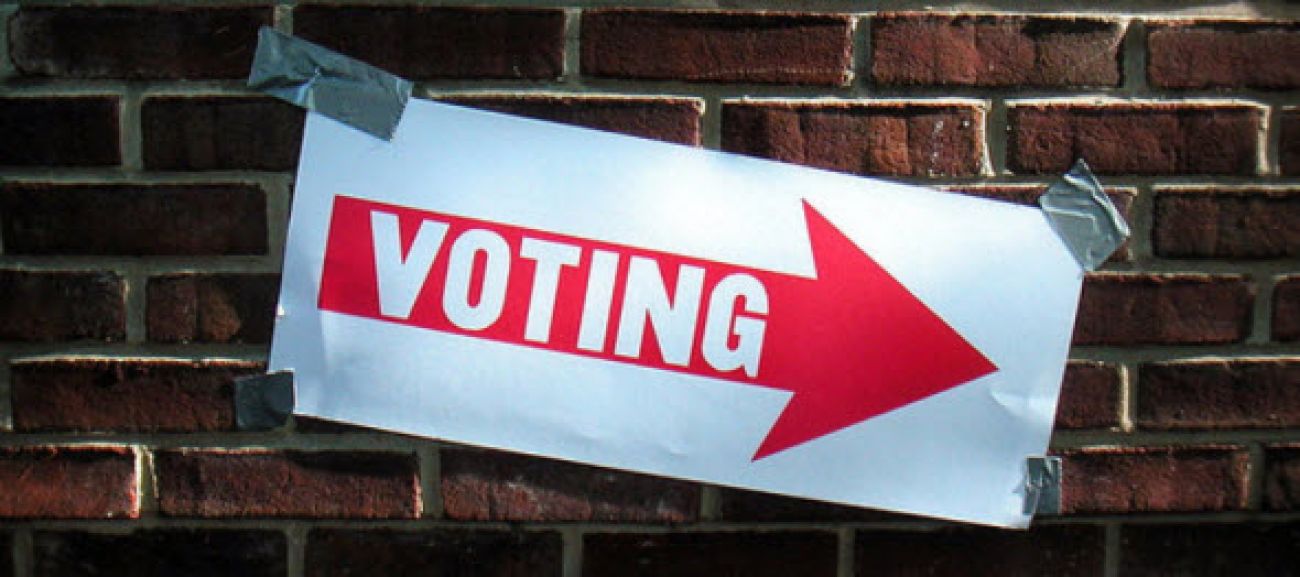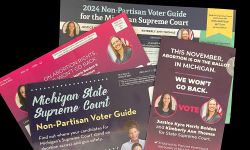Michigan GOP proposes one day for early voting. Other states offer weeks.

LANSING — A Senate Republican plan to create an early in-person voting day in Michigan faced criticism Wednesday, with voter advocates arguing it does not go far enough and conservative groups arguing it could compromise security.
The legislation, sponsored by Republican Sen. Wayne Schmidt of Traverse City, would require local election clerks to offer early and in-person voting from 8 a.m. to 5 p.m. on the second Saturday before an election.
Unlike absentee voting, the early in-person day would allow voters to see their ballot go through a tabulator machine to ensure it is counted, but it would be a felony to report any early voting results until polls close on Election Day.
Schmidt called his draft proposal the start of a discussion “to make sure we get more people participating while offering a secure form of voting.”
Related:
- GOP investigation finds no Michigan vote fraud, deems many claims ‘ludicrous’
- James Craig’s possible run thrills Michigan GOP. Detroiters, not so much.
- How to participate in Michigan redistricting commission hearings
- Michigan GOP relaxes ballot drop box reform. Critics say plan is still unfair
Election clerks support the concept of early in-person voting, but “one day is just not sufficient,” Farmington Hills Clerk Pam Smith told lawmakers on the Senate Elections Committee, where she testified on behalf of the Michigan Association of Municipal Clerks.
Allowing just one weekend day, with hours different than those on the traditional Election Day, “could cause voter confusion,” and it would create new costs for local communities without any new funding, Smith said.
Seeking to curb long lines on Election Day and provide voters with additional options to cast ballots, 24 states now offer some form of early and in-person voting and allow an average of 19 days, according to the National Conference of State Legislatures.
Aghogho Edevbie, state director for the All Voting Is Local voting-rights group, urged lawmakers to allow two full weeks of early in-person voting, calling the Republican plan “painfully inadequate.”
Michigan voters can already effectively vote early and in-person up to 40 days before Election Day by requesting and submitting absentee ballots at a local clerk’s office, which are also legally required to be open at least eight hours on the weekend before an election.
In last year’s presidential election, about 2.1 out of Michigan’s 5.5 million voters had already returned absentee ballots by Oct. 27.
Had the new early voting proposal been in place, voters could have also cast ballots in-person on Oct. 24, 10 days before the Nov. 3 election.
An early in-person voting day could instill confidence in the process by allowing voters to see their ballot go through the tabulator rather than putting an absentee ballot in the mail or a drop box, said Sen. Elections Committee Chair Ruth Johnson, R-Holly, who served as Michigan secretary of state from 2011 through 2018.
Sen. Ed McBroom, a Vulcan Republican who helped craft the Senate’s 39-bill election reform package, said he is “very intrigued” about the idea of allowing more than one early voting day, but he echoed clerk concerns over costs and mechanics for local officials.
Conservative critics ridiculed the measure.
GOP activist Linda Lee Tarver said it would be “laughable” to expand voting options after the 2020 election, which former President Donald Trump continues to falsely claim was rigged against him.
“We now have a situation where the ease of voting has compromised the ability to have a secure election, because there are so many opportunities for fraud,” said Adam de Angeli of the Rescue Michigan Coalition, a GOP group planning a potential drive to tighten voting laws.
“The solution is to make elections simpler and more secure.”
Secretary of State Jocelyn Benson, a Democrat who is the state's top elections official, has argued that “allowing one day of early voting on a Saturday weeks prior to the election, when most voters aren’t yet paying attention, doesn’t really provide for early voting in our state.”
In a conference call with reporters last month, Benson called the early voting bill “window dressing” for a larger voter “suppression package” that would also close absentee ballot drop boxes three hours before the polls close, require absentee voters to submit a copy of their photo identification and prohibit local governments from providing free return postage.
“I can’t help but wonder if its inclusion today is a cynical attempt to mislead the public from the true nefarious and detrimental impact the overall package of bills would have on our democracy,” Benson added Wednesday in written testimony.
Other bills debated Wednesday would prohibit nonpartisan groups like the NAACP and the League of Women Voters from designating poll challengers by striking language allowing them to guard "against the abuse of the election franchise."
Instead, only political parties could designate poll challengers, which sponsoring Sen. Rick Outman, R-Six Lakes, called an attempt to prevent “partisan volunteers” and “shadow groups” from masquerading as independent challengers.
Under the bills, the Secretary of State Office would be required to develop a "comprehensive training curriculum" for poll challengers, and political parties would be required to conduct that training at least three days before an election.
The legislation seeks to ensure local officials attempt to hire an equal number of Democratic and Republican election workers, known as inspectors.
Clerks that don't do so would be required to submit a report to the state detailing their failed efforts.
Clerks would also have to train election inspectors to conduct regular "balancing checks" to ensure the number of ballots issued matched the number tabulated in each precinct.
Election experts who testified Wednesday agreed that new training rules for poll challengers could improve the citizen oversight process, which devolved into chaos last fall when GOP challengers flooded the TCF Center in Detroit amid false fraud claims by Trump and demanded workers stop counting absentee ballots.
But limiting poll challengers to political parties would “inject more partisanship into our elections,” said Merissa Kovach of the ACLU of Michigan. “This is oversight that shouldn’t be bipartisan or politically motivated.”
See what new members are saying about why they donated to Bridge Michigan:
- “In order for this information to be accurate and unbiased it must be underwritten by its readers, not by special interests.” - Larry S.
- “Not many other media sources report on the topics Bridge does.” - Susan B.
- “Your journalism is outstanding and rare these days.” - Mark S.
If you want to ensure the future of nonpartisan, nonprofit Michigan journalism, please become a member today. You, too, will be asked why you donated and maybe we'll feature your quote next time!




